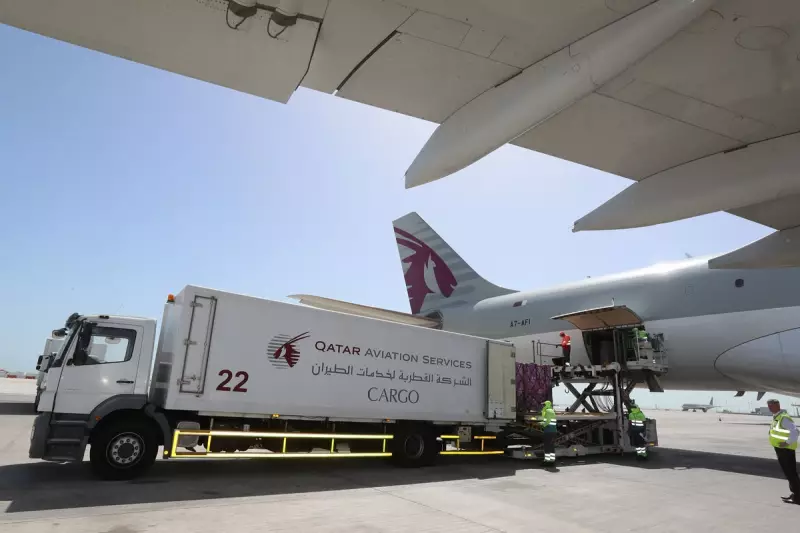
A British woman's dream journey turned to tragedy aboard a Qatar Airways flight, sparking urgent questions about airline emergency procedures and passenger safety protocols.
Tragedy at 35,000 Feet
During a routine flight, a vegetarian passenger began choking on her meal while the aircraft cruised at altitude. Despite immediate efforts from fellow travellers and crew members, the situation escalated rapidly into a medical emergency.
Witnesses described scenes of panic and confusion as attempts to dislodge the obstruction proved unsuccessful. The aircraft's limited medical resources and the challenges of providing emergency care in a confined space became starkly apparent.
Medical Complications Emerge
Although the passenger was initially stabilised after the choking incident, her condition deteriorated dramatically in the following days. Medical professionals later identified the cause of death as aspiration pneumonia - a severe complication resulting from food particles entering the lungs during the choking episode.
This tragic outcome highlights the hidden dangers of what might initially appear to be a resolved medical incident, particularly in environments with limited medical facilities.
Airline Safety Under Microscope
The incident has prompted serious examination of several critical aspects of in-flight safety:
- Emergency response training for cabin crew members
- Adequacy of medical equipment on commercial aircraft
- Protocols for managing serious medical emergencies during flight
- Food preparation and serving practices for special dietary requirements
Aviation safety experts emphasise that while such tragedies are rare, they underscore the importance of continuous training and preparedness for all possible scenarios.
Industry-Wide Implications
This case has resonated throughout the aviation industry, with passenger advocacy groups calling for enhanced emergency medical training and improved equipment on all commercial flights. The balance between providing quality catering and ensuring passenger safety has never been more scrutinised.
As investigations continue, airlines worldwide are reviewing their own emergency response procedures, recognising that preparedness for medical crises is as crucial as safety demonstrations for emergency landings.





